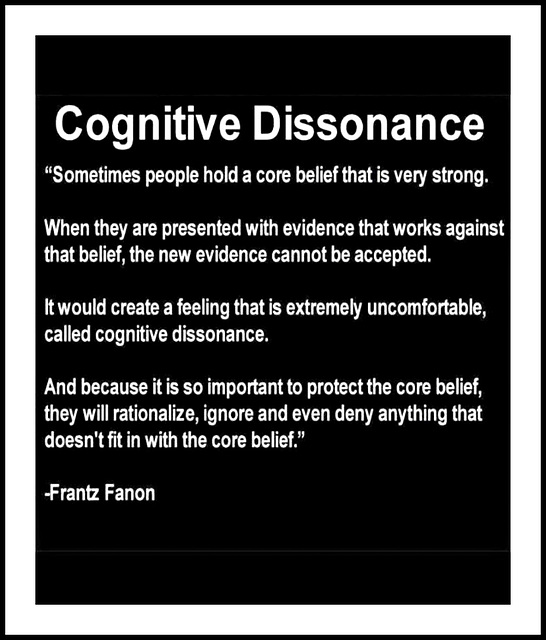Just a few remain
Glass shades on the ceiling
Fountains of Bellagio
Christmas special
Christmas special
Gondola
Indoor sky
Venetian
An image from the yore
Observatory
Where earth meets the sky
Pachyderm decked with real flowers
Figure 4.3 ~ Thousands of Years Ago
Figure 4.2 ~ Millions of years ago
A Tall Man
Christmas special
Christmas special
Fiddler
Music
Haleakala view
Street Scene
Wynn
Harrah's
Lake Mead
Laocoon
Coffee Info
Fountain of the Gods
Fountain of the Gods
Romans
Caesar
See also...
Keywords
Authorizations, license
-
Visible by: Everyone -
Attribution + non Commercial
- Photo replaced on 05 Dec 2019
-
85 visits
Cognitive Dissonance


Source: Facebook post
Martin’s www.chicagomag.com/city-life/may-2011/dorothy-martin-the-chicagoan-who-predicted-the-end-of-the-world-and-inspired-the-theory-of-cognitive-dissonance Prophecy attracted a determined band of followers, many of whom quit their jobs and gave up their homes to prepare for the end times. Some were drawn by newspaper advertisements that proclaimed the end of the world. The advertisements also caught the eye of a young University of Minnesota psychologist named Leon Festinger, en.wikipedia.org/wiki/When_Prophecy_Fails who infiltrated the group in hopes of studying th after-effects of a prophecy that failed to materialize. He fully expected Martin’s followrs to lose their faith. But when December 21 came and went without floods or UFOs, the most committed of Martin’s followers grew stronger in their commitment. They doubled down.
Festinger documented his experience in his book “When Prophecies Fail” His great contribution was the concept of cognitive dissonance: It is painful to hold opposing ideas in our minds, and we seek ways to relieve this conflict. . . . As Festinger discovered holding opposing notions is painful, and people look for ways to remove this source of pain. In sacrificing the facts can ease the unpleasant feeling, and facts turn out to be expandable.
Cognitive dissonance helps to explain a lot about the world -- from voters who refuse to acknowledge they made a mistake in electing a demagogue to organizations that fail to back away from misguided policies, even in the face of mounting evidence. . . . Page 114
Martin’s www.chicagomag.com/city-life/may-2011/dorothy-martin-the-chicagoan-who-predicted-the-end-of-the-world-and-inspired-the-theory-of-cognitive-dissonance Prophecy attracted a determined band of followers, many of whom quit their jobs and gave up their homes to prepare for the end times. Some were drawn by newspaper advertisements that proclaimed the end of the world. The advertisements also caught the eye of a young University of Minnesota psychologist named Leon Festinger, en.wikipedia.org/wiki/When_Prophecy_Fails who infiltrated the group in hopes of studying th after-effects of a prophecy that failed to materialize. He fully expected Martin’s followrs to lose their faith. But when December 21 came and went without floods or UFOs, the most committed of Martin’s followers grew stronger in their commitment. They doubled down.
Festinger documented his experience in his book “When Prophecies Fail” His great contribution was the concept of cognitive dissonance: It is painful to hold opposing ideas in our minds, and we seek ways to relieve this conflict. . . . As Festinger discovered holding opposing notions is painful, and people look for ways to remove this source of pain. In sacrificing the facts can ease the unpleasant feeling, and facts turn out to be expandable.
Cognitive dissonance helps to explain a lot about the world -- from voters who refuse to acknowledge they made a mistake in electing a demagogue to organizations that fail to back away from misguided policies, even in the face of mounting evidence. . . . Page 114
- Keyboard shortcuts:
Jump to top
RSS feed- Latest comments - Subscribe to the comment feeds of this photo
- ipernity © 2007-2024
- Help & Contact
|
Club news
|
About ipernity
|
History |
ipernity Club & Prices |
Guide of good conduct
Donate | Group guidelines | Privacy policy | Terms of use | Statutes | In memoria -
Facebook
Twitter

Sign-in to write a comment.